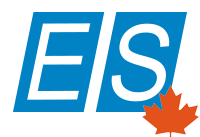Continuous Cadmium (Cd) Analyzer | SEIBOLD
The SEIBOLD Continuous Cadmium (Cd) Analyzer is designed to detect and measure cadmium levels in various water sources, including drinking water and industrial wastewater. It uses a spectrometric method to provide accurate and continuous monitoring, with features like automatic calibration and cleaning. This robust and precise analyzer is ideal for critical applications such as river monitoring, the semiconductor industry, and electroplating. It ensures minimal maintenance and easy handling, making it a reliable choice for environmental safety and compliance.
Cadmium compounds are among the most dangerous pollutants in the environment. Cadmium can come from various sources:
Industries: Cadmium in metal form is used in the steel and plastic industries. Cadmium compounds are widely used in batteries.
Drinking Water: Contamination can also occur due to impurities in zinc found in galvanized pipes, solder, and metal fittings.
For drinking water, the recommended maximum concentration is about 0.005 mg/L. Cadmium is toxic to most organs, particularly the kidneys, bones, and lungs.
Measurement Method: Based on measuring metal ions in wastewater and their reaction with reactive dyes using spectrometric measurement.
Technical Specifications:
- Measurement Range: 0.005 - 1.000 mg/L (other ranges available on request)
- Accuracy: +/- 3% full scale
- Resolution: 0.005 mg/L
- Automatic calibration and cleaning
- Spectrometric method with LED detector
- Equipped with a color LCD screen
- Measurement Interval: continuous, discontinuous (programmable, remote triggering)
- Sample Volume: 75 - 200 mL
- Reagent and Buffer Volume: 3 mL
- Maintenance Interval: 3 months
- Operating Temperature Range: 5 - 40°C
- Operating Humidity Range: 0 - 85% RH
- Output: 4 - 20 mA
- Powered by 220 V
- External Dimensions: 70 x 50 x 35 cm, Weight: 35 kg
- Housing: stainless steel (for drinking water applications) or plastic (for other industrial applications)
Advantages:
- Robust design
- Minimal maintenance
- Easy handling
- High precision
- Suitable for critical applications
- Automatic cleaning and calibration
Typical Applications:
- Drinking water measurement
- River monitoring
- Semiconductor industry
- Electroplating












